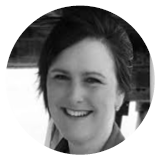Empowering excellence in end-of-life care for older Australians: Charting a vision for palliAGED
An article written by Raechel Damarell, palliAGED Senior Research Fellow
I was delighted to recently join the small yet mighty team behind palliAGED as Senior Research Fellow. Having long advocated for the importance and value of palliAGED as a top-tier education and training resource for the aged care sector, I promoted it extensively in my previous role with the ARIIA venture. My timing aligns with a pivotal moment in the history of Australian aged care, marked by impending reforms that are sure to shape the governance and delivery of care quality in the years ahead. As the Government’s newly released Intergenerational Report reminds us, ours is a rapidly ageing population. We can therefore expect increasing pressures on aged care services, combined with a societal expectation of better-quality care characterised by consumer choice, dignity, and respect.
Despite the pressures new reforms such as 24/7 nurse attendance, minimum direct care hours, and workforce wage increases place on providers, these initiatives are based on a collective will to realise a vision of aged care that we deem worthy of our current elders, as well as our future selves. My vision for palliAGED over the coming years is that it continues to play an important educative role in tackling some of the problems facing the sector. I see it doing so by:
- Supporting aged care organisations to offer ongoing training opportunities to their staff to continuously lift the standard of end-life-care they provide to care recipients and their families
- Strengthening the confidence and competence of the aged care workforce through practical skills development, as well as through increased understanding of their own role in providing this care
- Offering practical guidance on caring for the increasing number of older people with challenging health problems such as frailty and complex multimorbidity
- Contributing to a workplace culture that views older people as unique individuals with rich and diverse life stories who are worthy of person-centred (and sometimes trauma-informed) care
- Strengthening the quality of care provided within the home setting at the end of life so that more people may fulfill their wish to die comfortably at home
- Realising better ways of working with other sectors and reducing fragmentation between aged care and the primary, acute, emergency, and specialist sectors and their practitioners
- Increasing sector awareness of the potential for technology to play a role in supporting care.
In addition to maintaining a quality product that makes a real difference to how care is provided, it is also important we here at palliAGED continue to listen to, and work closely with the sector as its needs and priorities inevitably change with time. Here those who work in aged care might help us. It’s my hope that you keep engaging with us, being upfront about how our work shapes and influences what you do, or how we might do better. I invite you to feel free to contact me directly, or the project, to discuss palliAGED and how its resources might support you or your organisation to create quality end of life experiences for those in your care, their families and advocates.
Authors:

Raechel Damarell, BA, Grad Dip Info Stud, PhD
Senior Research Fellow
CareSearch and palliAGED
Research Centre for Palliative Care, Death and Dying (RePaDD)